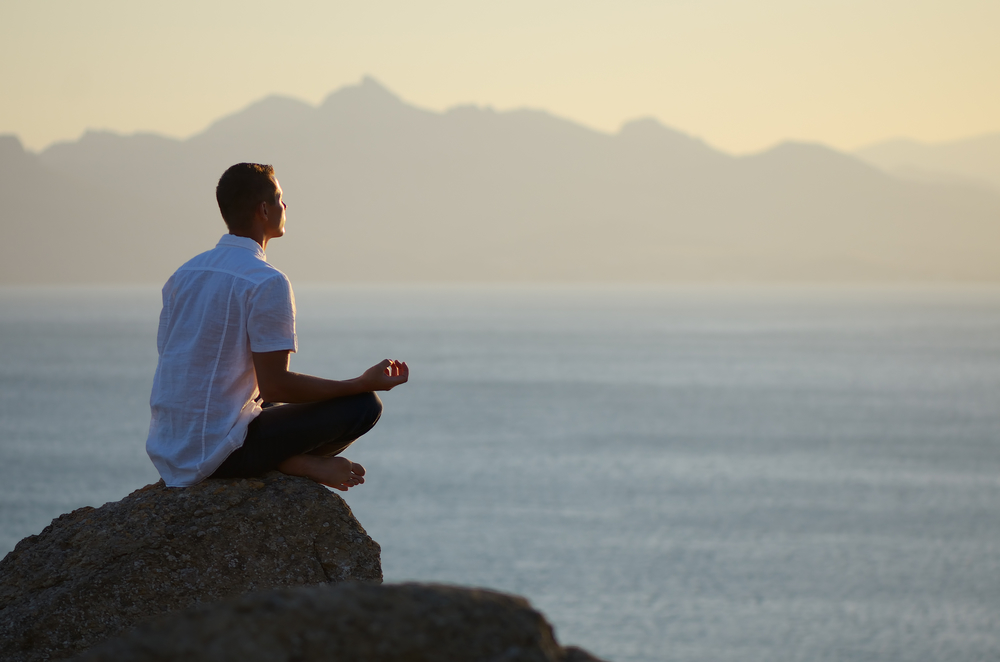The past year has been whirlwind. A lot in my life has changed.
I quit my job as a speaker to focus on writing and starting a new business. I moved to Colorado. I made new friends. I got a speeding ticket in a rented sports car. I officiated two weddings and was the best man in a third. I got my first piece of hate mail. I watched one of my mentees go on to become substantially more successful than I am (that was interesting…). I held a few of my friend’s new babies. I went on dates. I advised a reformed mob boss, a multi-platinum recording artist, one of the United State’s leading surgeons, several investors, and countless entrepreneurs. I spent a day babysitting a 10 month old and a 3-year-old. I hosted close friends and family when they came to visit. I had hard conversations that I had been putting off (most of them went really well – I wish I hadn’t put them off). And I quit drinking caffeine… several times.
But what I hadn’t done – until two weeks ago – was give myself time to come down from it all, to process everything that happened, and to reconnect to myself and the flow of the world.
And truthfully, it was starting to show. I had become frayed at the ends. The energy and excitement that inspired me to chase one adventure after another was waning. The stable sense of purpose and enchantment I rely on felt blurry and difficult to access.
So I spent three days in silence at an ashram hidden away in the Rocky Mountains. My aim was to reconnect to the passion and energy that inspires me to live as vivaciously as possible.
In this article, we’ll cover what happens when you decide to step away from the stress and noise of modernity, and focus exclusively on yourself for a few days. More than that, you’ll learn how to consistently find stability within a shockingly destabilizing world.
You’ll learn how to use a personal retreat to reconnect to your sense of purpose, flow, power, and enchantment. In fact, many people will find that going on a retreat will provide the same benefits that they would normally expect from a skilled psychologist or coach. And don’t worry, intense silence and isolation isn’t always necessary for reconnecting to yourself.
I’ll also share what I learned from spending three days in silence, disconnected from the world.
Step 1: Prioritize yourself by calling in healthy

The world we live in is chronically destabilizing. We’ve become convinced that if we aren’t stressed, we aren’t working hard enough. The personal development industry has tricked us into believing that we aren’t ok. The news wants you to believe that we live in a dangerous world. Texts, emails, and social media are constantly fracturing our attention.
This leaves you feeling as though you’ve fallen behind. You feel that if you’d just push a bit harder, you can catch up – maybe even pull ahead. The sensation of always being behind makes you feel small and robotic. You become reluctant to invest time in doing nothing; you fear that if you do, you’ll fall back even further.
And there’s the rub: if you’re reluctant to take a few days for yourself, you clearly have indicated that the demands of the world are more important than your needs and happiness. They aren’t.
Begin the process of reconnecting with yourself by literally scheduling time in your calendar for you. At the very least, hold one full day for yourself. If you’re able to schedule more, even better.
Step 2: Alone or with a companion?
When I recharge, I like to be alone. However, many people find they are happier and more lucid when they bring someone they love.
If you decide to bring someone with you, ensure that they share your desire to recenter and that you are comfortable opening up and being vulnerable around them. When done correctly, personal retreats create deep insight into your heart and mind.
Step 3: Find your haven
I like to spend time at the ocean, in the mountains, or in the forest. For me, the sheer act of being in nature is healing.
Of course, you don’t actually need to go anywhere. You can recenter from your own home. You can also rent a hotel room, crash at a friend’s place while she’s out of town, or go camping.
The important part is that you find a place that allows you to disconnect from the demands of the outside world. This will allow you to focus on yourself.
Step 4: Disconnect

In order to reconnect to yourself, you have to temporarily disconnect from the outside world. I recommend keeping your phone and computer off for at least a day, and ideally the entire retreat. You may be surprised to find that after the initial discomfort, you feel relieved to be untethered from the digital world.
Be sure to put up an out of office auto-responder and tell the people that you’ll be unavailable for a few days.
If you feel the need to stay in touch with a few people, schedule the calls before you leave so that you remain as disconnected as possible. If you do this, make sure you’ve turned off your phone’s notifications so that you aren’t tempted to check in with your digital life.
I know that many people are reluctant to consider spending even a few hours without their phone. If you’re one of these people, ask yourself why you’re so reluctant to disconnect. Many people will find that they’re afraid of boredom. If you can relate to this, it’s a sign that you need to lean into your boredom. Just beyond it, you’ll discover quiet but profound truths about yourself
Step 5: Be intentional about your mental and emotional inputs
Several weeks prior to my retreat, I binge watched the cartoon Rick and Morty. (Note: if you haven’t watched Rick and Morty, you’re missing out). During the retreat, I found myself thinking about Rick and Morty quite a bit. This was a sharp reminder that our minds and hearts are sensitive instruments; they respond to whatever we allow in. I spent time watching cartoons, and two weeks later, I was still thinking about cartoons.
Once you’ve disconnected from the digital world, it’s tempting to fill the space with music, audiobooks, podcasts, novels, magazines, activities, and if you’re like me, cartoons.
Resist the urge.
Spend at least a few hours with minimal inputs. Allow yourself to become bored so that your mind starts to wander. You’ll notice that as it does, you gain clarity and insight into yourself. Your thoughts and feelings will start guiding you toward new levels of insight. You’ll notice emotional or behavioral patterns that you had previously been unaware of.
The deeper your awareness becomes, the more power you’ll wield over yourself and the world around you.
Here are the inputs that will speed up the process of finding clarity during your retreat:
- Gentle exercise like hiking, walking, yoga, or calisthenics
- Good books
- Healthy foods
- Music you love
- Reflective, open conversation
- Massages
- Time in nature
Step 6: Relax, reflect, and recharge

This is the most important part of the retreat. First, you need to rest. You can’t reconnect to yourself if you’re exhausted. Most people -especially if they’re living in a city- are running on less sleep, less relaxation, and less rest than they need.
If you have to spend a day or two lying in bed, reading, and listening to music, more power to you. You’ll notice that after a bit your energy levels and excitement about life begin to spike. Many people will feel more energetic than they have in a long time. I did.
As your energy returns to you it’s time to begin the deep work of reconnecting to yourself. The goal is to gain insight into the psychological and spiritual knots that have been hindering you. Different approaches work for different people. Pick the approach that feels right. The most common ones are:
- Meditating
- Journaling
- Praying
- Walking in nature
- Holding space for pure silence
- Speaking openly and candidly to a trusted companion
- Interviewing yourself
There’s no need to force insight. With time, space, and reflection, you’ll automatically deepen your understanding of yourself. Resist the urge to be critical. Instead, approach yourself with warmth and compassion, since this will heal you much more quickly than judgment.
Step 7: Notice what’s going well in your life…

Our minds are wired to spend more time attending to the bad aspects of our lives than the good ones.1
Because of this, we judge the world and ourselves far more harshly than is warranted.
End your retreat by noticing what’s going well in your life and the world around you. I like to make a list.
By focusing on positives, you will return to your normal life with a refreshed and empowered perspective. This perspective can be used to create happiness, vivacity, abundance, and joy.
So, how did my 3 days of silence go?

When I started my silent retreat, I was genuinely nervous. I was anxious about disconnecting and spending time in solitude. I didn’t enter the retreat with a strict plan. Instead, I let my body and intuition guide my decisions.
I spent most of the first day resting. As I rested, I noticed a growing sense of energy and excitement returning to my body.
I spent the second and third days meditating, journaling, hiking, and doing nothing. I could feel the stress melting away and my mind slowing down. This created space for suppressed emotions to surface.
I noticed that the excitement of the past year obscured a few truly painful experiences that needed my attention. I held space to feel the pain that I had been avoiding. I allowed myself to feel sympathy before releasing the pain. I noticed knots around love and money that have been preventing me from stepping fully into my life.
As I processed my thoughts and feelings, I felt them dissolve. In their place, I regained a sense of purpose, clarity, drive, excitement, peace, and connection.
It’s been over two weeks since I returned from my retreat. I still feel a strong sense of flow, enchantment, calm, clarity, and excitement. With an open mind, and a few days for yourself, you can expect similar results.
Footnotes
- More on the negativity bias and our mind’s obsession with what’s wrong here in the section titled “The negativity bias,” attentional filters, and other things that make loving yourself difficult.
Another gem Jason! I am highly in favor of retreats!!!!
Thanks Becky – for some reason I’m not surprised to learn you’re a fan of retreats too. 🙂
Sounds good – I’ve decided to take the morning off and go for a hike in the bluffs!
Love it! Enjoy your time hiking Brady – hope it brings some calm and clarity for you. Nature is magic.
Very insightful Jason! Even when all my children were home, if things were getting to busy for all my f us, I would try to delay, cancel or reschedule so that either I, or all the kids, could have downtime. Stay at home time. They may have been plugged in for part of it but I would notice, depending on their ages, they would gravitate towards other activities. Or optimally, just relaxing.
Not truly disconnecting in the true sense but a bit of relief in our hectic lives. I always enjoy and appreciate reading your point of view.
Patty – that’s awesome. There’s a lot of value in simply reducing the stress levels that we’re exposing ourselves to, and it sounds like you’re doing exactly that. I didn’t write about it in the article (it didn’t occur to me), but one way of getting a lot of the same results is to do what you did for your family: periodically just cancel everything and let people do as they please for a bit. In it’s own way, that is very much disconnecting. Interesting to read that your kids drifted towards other activities.